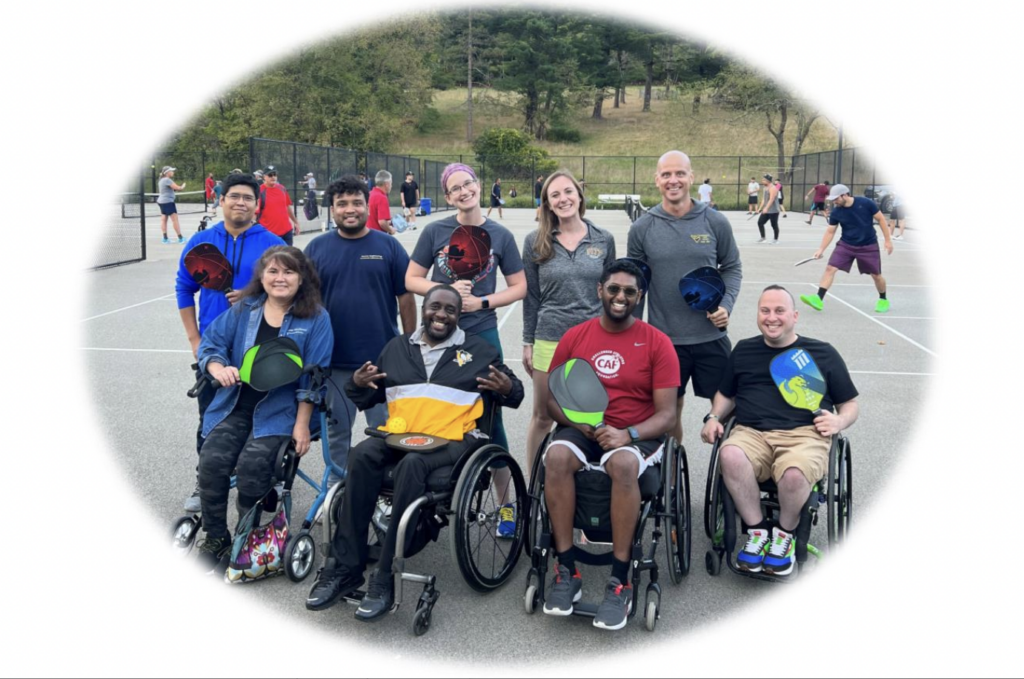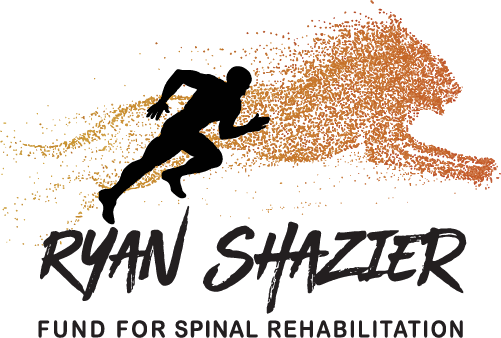Submitted by Michael Grapner, Program Coordinator – PMR Adaptive Sports and Recreation, University of Pittsburgh/ UPMC
Summer is here and Michael is sharing adaptive sport options for the SCI community.
Living with a spinal cord injury or disability can present numerous physical, emotional, and social challenges. However, the transformative power of adaptive sports and recreation has been recognized as a crucial element in enhancing overall quality of life while fostering a sense of community and improving personal health.
Let’s explore the importance of adaptive sports and recreation, by highlighting the community-centered approach championed by organizations like the Ryan Shazier Fund in addition to several other leading organizations in the Pittsburgh adaptive sports community.
Whether it’s wheelchair basketball, sled hockey, yoga, para-cycling, or the arts, these activities challenge participants to push their boundaries and achieve personal milestones. This growth isn’t limited to physical achievements; it encompasses mental resilience and emotional strength. For many, the discipline and determination created through participation in adaptive sports and recreation activities translate into other areas of life, such as career opportunities, personal relationships, and for some the opportunity to compete at elite level in Paralympic sports.
In Pittsburgh, there is a growing number of programs tailored to different abilities and interests that ensure opportunities to participate in community based adaptive sports and recreation. These programs not only teach the technical skills needed for sport participation but also emphasize goal-setting, teamwork, and perseverance. Organizations like Hope Network and Three Rivers Adaptive Sports offer tailored programs to meet the specific needs of individuals with disabilities, ensuring safe and effective engagement in activities while reaping psychological benefits.

Research suggests that regular participation in physical activities improves cardiovascular health, builds muscle strength and enhances flexibility, in addition to boosting overall fitness. These benefits are crucial as they help prevent secondary health conditions and improve physical functioning. Adaptive sports and recreation not only provide these health benefits but also create a structured way for participants to stay active and engaged, which is essential for long-term quality of life.
The mental health benefits of adaptive sports and recreation are equally significant. They reduce symptoms of depression and anxiety, improve mood, and boost self-esteem. This is particularly important for individuals with disabilities, who may face unique stressors and challenges. Achieving personal goals, mastering new skills, or completing challenging courses boosts self-esteem and fosters a positive self-image. The camaraderie and support from teammates and coaches enhance these feelings by creating a strong sense of belonging and community.
In addition to the physical health and mental health benefits, the third pillar and one of the most significant advantages of adaptive sports and recreation is social engagement and connection to the community. Organizations like PMR Adaptive Sports and Recreation and the Pittsburgh Steelwheelers play a pivotal role in this aspect. By organizing sporting events and recreational activities, they create inclusive spaces where participants can engage with peers, build friendships, and find emotional support. For many, these social interactions while shared with a family member, friends or loved one are invaluable and help to combat feelings of isolation and depression. This community-centered approach helps break down barriers and combats the isolation often felt by individuals with disabilities.
Pittsburgh continues to champion adaptive sports and recreation, The Ryan Shazier Fund. in addition to the organizations above, set a powerful example of how communities can come together to support and celebrate the abilities of all their members. Whether you’re an athlete, a volunteer, or a supporter, participating in or promoting adaptive sports is a meaningful way to contribute to the well-being and unity within the community.
About the author:
Michael Grapner is the Program Coordinator for PMR Adaptive Sports and Recreation in the department of Physical Medicine and Rehabilitation at University of Pittsburgh and UPMC. Michael is a Certified Adaptive Recreation and Sport Specialist and earned his Bachelor’s degree in Kinesiology and Health from Miami University in Ohio and Master of Science in Recreation and Sport Science from Ohio University.
In his current role, Michael enjoys working closely with local community organizations and advocacy groups to provide accessible pathways for sports, recreation and community engagement. He is committed to promoting inclusive healthy living activities to improve overall quality of life for individuals with disabilities.
LINKS:

